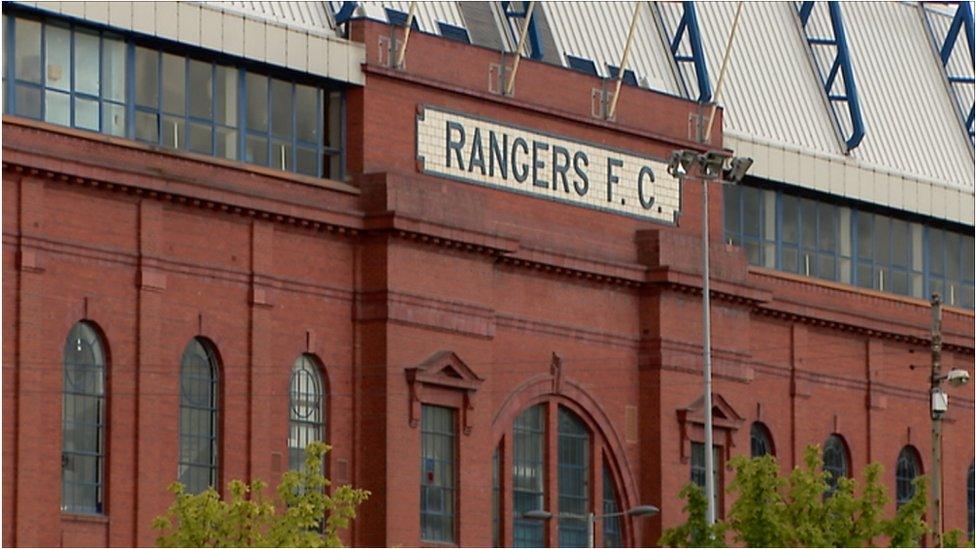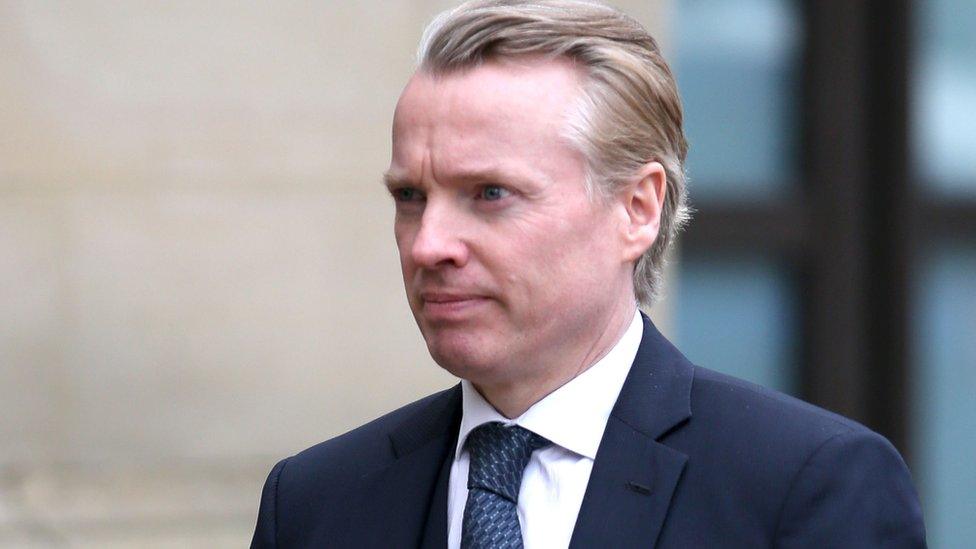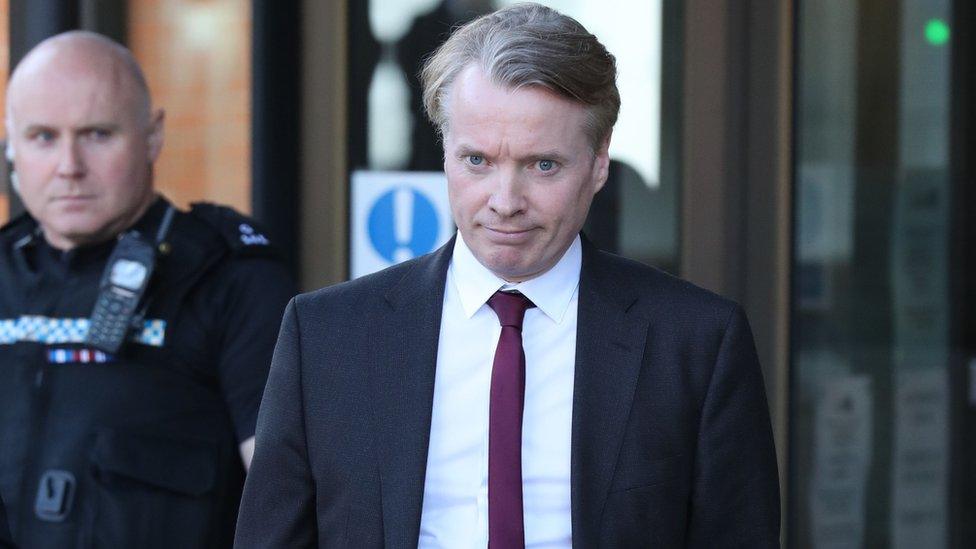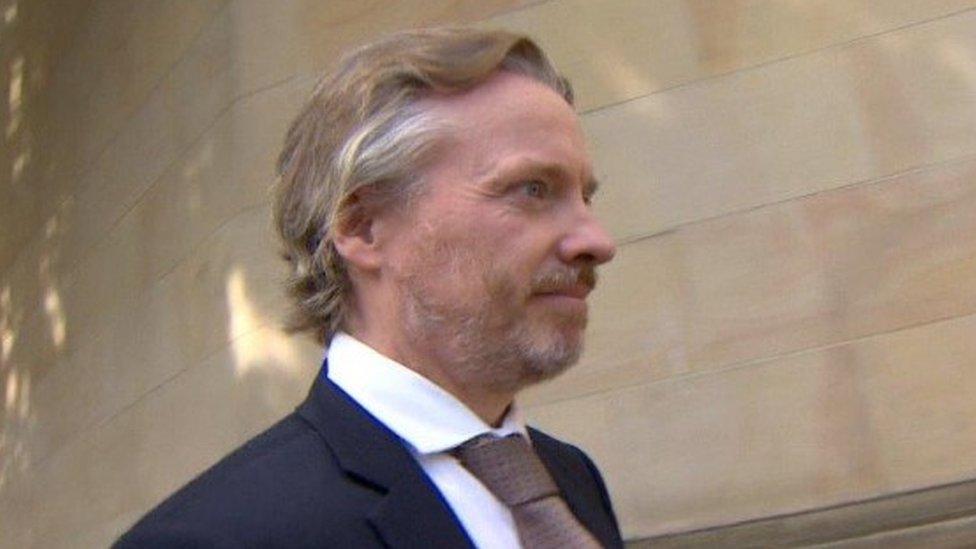Craig Whyte Trial: Rangers executive paid 'bonus' for club's sale
- Published

The court heard that Martin Bain's role in the sale of Rangers was limited
Former Rangers chief executive Martin Bain received a bonus for his role in the club's sale, a court has heard.
Mr Bain, who was on a committee of directors set up to assess takeover bids on behalf of shareholders in the club, was paid £360,000.
The details emerged during an 11th day of evidence at the High Court in Glasgow where Craig Whyte is accused of a fraudulent acquisition of Rangers.
He denies a charge of fraud and another under the Companies Act.
Chartered accountant and former Rangers director Michael McGill said Mr Bain's role in the deal was "limited", but that he had a contractual arrangement in place.
During cross-examination by Craig Whyte's defence QC, Donald Findlay, Mr McGill was asked: "£360,000 for what?"
Mr McGill replied: "He had a long-standing arrangement with the Murray Group, entered into some years before."

Craig Whyte denies fraudulently trying to acquire Rangers
Mr Findlay asked: "Did he do anything to help the sale of Rangers to the Whyte group?"
The witness said: "I won't comment if he helped or not. His role, as a whole, was limited, but there was an agreement from years before."
It was also previously heard during the case that Mr Bain had been given a new contract with a 39-month notice period.
The court was also told that David Horne, a lawyer from Sir David Murray's Murray Group, also received a £160,000 payout following the sale to Mr Whyte.
The jury heard that Rangers former owner, Sir David Murray, had wanted £5m per year for four years to be invested in the playing squad as part of the sale to Craig Whyte.
However, Mr Whyte's QC claimed to the court that £5m "would not get you Messi's left foot".

Former Rangers owner Sir David Murray sold the club to Craig Whyte in 2011
Mr Findlay added: "The economic reality is that it is not going to make any difference."
Mr McGill said: "I don't know if I am qualified to say that £5m will make a difference to the football team."
Mr Findlay said it was "a figure plucked out of the ether" and "a bit of PR window dressing".
The jury later heard of a number of emails relating to Mr Whyte's takeover before he took the helm at Ibrox.
In one dated April 2011, Mr McGill stated: "Given the useless twits don't have the funds, it appears somewhat academic."
Mr Findlay asked the witness: "Murray was determined to sell Rangers for the right reasons or not?"
Mr McGill: "No, I would not agree with that."
Mr Findlay: "According to you, you sold Rangers to useless twits who did not have the funds."
The witness told the court that reflected "frustrations" at that time.
'Small tax case'
Prosecutors allege Mr Whyte pretended to Sir David Murray, and others, that funds were available to make all required payments to acquire a "controlling and majority stake" in the club.
The Crown alleges Mr Whyte had only £4m available from two sources at the time but took out a £24m loan from Ticketus against three years of future season ticket sales.
The court has heard the sale was eventually made to Mr Whyte for £1 but came with obligations to pay an £18m bank debt, a £2.8m "small tax case" bill, £1.7m for stadium repairs, £5m for players and £5m in working capital.
The second charge under the Companies Act centres on the £18m payment between Mr Whyte's Wavetower company and Rangers to clear a bank debt.
The trial before eight men and seven women continues.
- Published3 May 2017

- Published25 April 2017

- Published24 April 2017

- Published21 April 2017

- Published20 April 2017
